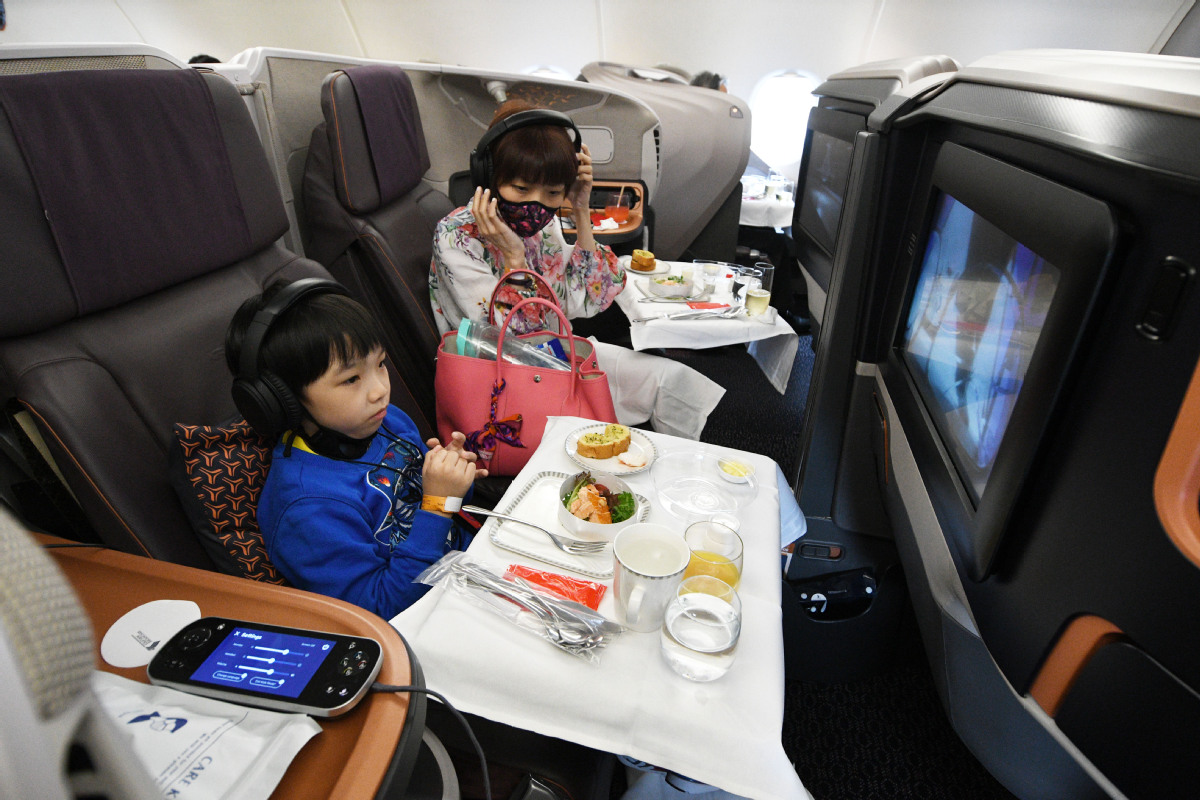Global carriers adopt innovative measures to stay afloat


Global air carriers are adopting various innovative measures to increase revenue and stay afloat amid difficulties due to COVID-19.
Before the contagion, it was expected that 4.7 billion passenger trips would take place around the world this year. However, due to the pandemic, this number is now expected to be just 1.8 billion-equaling the level seen in 2003, according to the International Air Transport Association.
In addition, more than 40 airlines globally have gone bankrupt, according to data from the association.
AirAsia, a Malaysian budget carrier, is on track to shift itself from a traditional airline to an online travel agency (OTA) platform, and it hopes to evolve into a lifestyle platform once its OTA platform is mature. It plans to provide bookings for travel products such as hotels and admission tickets to sightseeing spots, as well as online shopping and food delivery services.
AirAsia also aims to set up a supermarket in Southeast Asia similar to Hema Fresh-a grocery chain backed by e-commerce giant Alibaba Group-in China. The company said it would start the business in Southeast Asia first and enter China at a later date. In addition, the carrier has opened a number of chain restaurants in Kuala Lumpur where it provides affordable Southeast Asian delicacies. It has plans to open more restaurants in several cities in South China, it said.
"Currently, we are seeking partners in China. Chinese consumers are at the forefront worldwide in many areas, and there are still a lot of business factors to be considered," said Zhou Hu, chief executive officer of AirAsia China.
"The digitalized transfer of Air-Asia started two years ago. The carrier began its strategic expansion at the time, and the process has sped up due to the pandemic. We have a pool of more than 75 million customers and we cooperate with more than 700 airlines globally," Zhou said.
Li Hanming, an aviation industry analyst, said AirAsia has been doing well in different market segments and niche marketing, and has accumulated a large number of long-term stable customers. Thus, it can utilize its customer base to expand into other derivative businesses.
AirAsia has resumed more than 50 percent of its flights connecting Malaysia, Thailand and the Philippines. In addition, the company configured some of its commercial aircraft into freighters, and it has launched green channels for freight transportation routes with multiple countries and regions. The company has achieved extra revenue from its cargo business, it said.
"Low-cost airlines operate more flights within the region, so demand for widebody aircraft for long-haul international flights is relatively small. Thus, when demand for intercontinental routes dropped sharply globally, the impact on low-cost airlines was smaller," Zhou said.
Separately, Singapore Airlines has transformed two of its Airbus A380 aircraft at Singapore Changi Airport into restaurants as it seeks ways to achieve more revenue outside of operating flights.
Diners can choose to have different meals in first class, business class or economy class seats, and prices range from S$50 ($37) to about S$600. Diners can also watch movies onboard the stationary aircraft. Such options were available on certain dates in October and November and bookings were quite popular, according to the carrier.
Compared with other major airlines, with the lack of a domestic market, Singapore Airlines is in a more vulnerable position amid the global pandemic. The company said that by the end of this year, it will be difficult for the carrier to resume 50 percent of the capacity of pre-pandemic levels.
Over the next few years, Singapore Airlines will reduce its fleet size and flight network to stay viable in an environment rife with uncertainty, it said.
Thai Airways has begun selling in-flight meals on the ground, and flight attendants will offer services for diners who sit in modified aircraft seats. The carrier has also recently launched a new business selling deep-fried dough outside of airports, and it has gained a considerable amount of revenue from selling the popular snacks.




































